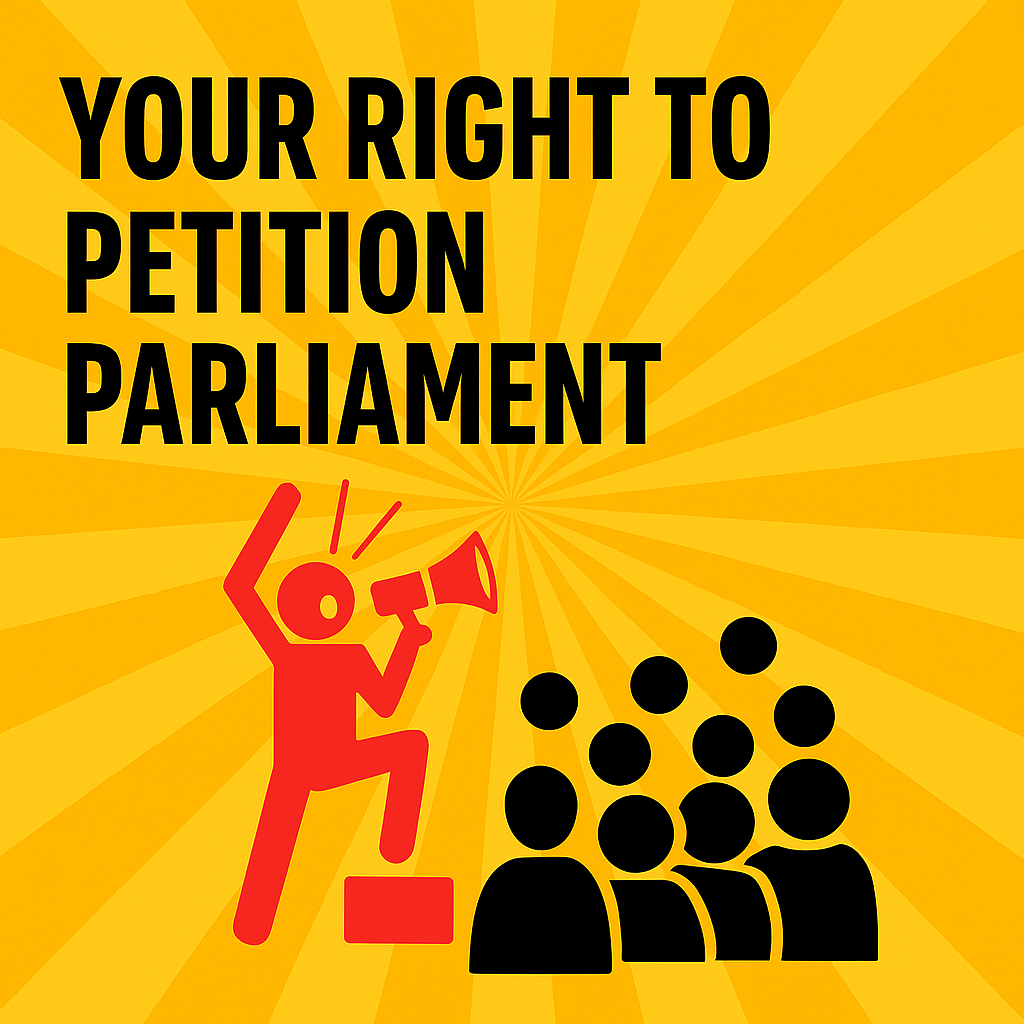How To Petition Parliament In Zimbabwe
In Zimbabwe, citizens have the right to petition Parliament on matters they are not happy with or they want addressed as long as it is within the confines of its authority.
The right to petition Parliament is provided for by Section 149 of the Constitution.
Section 149 says “(1) every citizen and permanent resident of Zimbabwe has a right to petition Parliament to consider any matter within its authority, including the enactment, amendment or repeal of legislation.
- (2) The manner in which petitions are to be presented to Parliament, and the action that parliament is to take on presentation of a petition, must be prescribed in Standing Orders.”
Elements of a Petition
In Zimbabwe, a petition contains essentially two main parts namely grievance and prayer. A petition must clearly state its grievance. The petitioner must clearly raise the issues of concern, that has caused them to write the petition.
A prayer must speak to, or be derived from the grievances raised. Essentially the prayer informs Parliament how the petitioner expects their issues to be solved.
So, a petition only becomes admissible when all requirements have been satisfied, that is the petitioners must be citizens or permanent residents, the matter of a petition must be within the mandate of Parliament and it must have clear grievances and a prayer.
Other Requirements
The organization or juristic person writing the petition are required to clearly state the names of the people or group they are representing and in the organisation.
This requirement is important to ensure transparency and curb against abuse of the right to petition by foreign influence. Organisations or juristic person must clearly stipulate the manner in which they are funded.
A petition must be written in respectful language and tone as a general requirement for petition and it should be in writing and signed.
Inadmissible Petition
A petition becomes in admissible when it fails to meet all the requirements as provided for in the Constitution and Standing orders.
The other thing that also makes a petition inadmissible is when it requests Parliament to perform a function outside of its constitutional mandate.
It also becomes inadmissible if it contains the same or substantially similar information to a petition lodged by the same person, during the same session of Parliament and which has been addressed.
Petition Procedure
Appendix E to the Standing Orders stipulate that petitions may be lodged with the Clerk of Parliament in writing or sent to the Clerk by email.
Petitions may only be lodged when the office of the Clerk is open and Parliament is not dissolved. In the event that a petition is lodged when Parliament is not sitting, the petitioner must be informed of the next possible sitting so that they may lodge their petition.
A petition may be presented to Parliament by citizens and permanent residents of Zimbabwe. This right also extends to juristic persons or organisations.
The Clerk through Counsel’s office has to examine the petition for compliance within five working days and submit the petition with recommendations to the Speaker or the President of the Senate.
After receiving the petition, the Speaker or the President of the Senate shall inform the National Assembly or Senate and refer the petition to the relevant Committee.
The petitioner shall be informed that the petition was admissible and referred to a relevant Committee. If the petition is inadmissible, the petitioner shall be notified and the reasons for inadmissibility.
The Committee shall consider the petition within 60 business days and present the report and recommendations to the House. The House may adopt or reject the recommendations of the Committee.
The petitioner shall be informed of the outcome of his or her petition upon conclusion and resolution of the House.
Send Your Petition To:
The Clerk of Parliament
Parliament of Zimbabwe
P.O. Box CY 298, Causeway, Harare
Email: cl***@*********ov.zw




